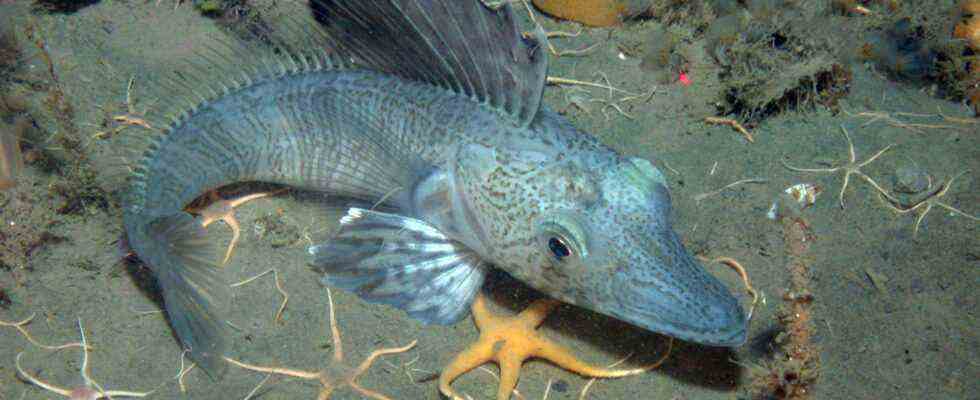Status: 01/13/2022 5:09 p.m.
Scientists from Bremerhaven have found a fish breeding area about the size of the island of Malta in the south of the Antarctic Weddell Sea. The researchers are fascinated by the fact that it was not discovered long ago.
Scientists from the Alfred Wegener Institute for Polar and Marine Research in Bremerhaven have been exploring Antarctica on board the research ship “Polarstern” since the early 1980s. So far they have only found individual ice fish and smaller nests.
Now the scientists are reporting something astonishing in the journal “Current Biology”: There could be around 60 million ice fish nests near the Filchner Ice Shelf in the south of the Antarctic Weddell Sea. The area with a total area of 240 square kilometers could be the largest fish breeding area known to date. It’s about the size of the island of Malta.
The research ship “Polarstern” of the Alfred Wegener Institute has been sailing in the Antarctic since the 1980s
Image: dpa
Deep sea biologist: “Totally fascinating”
“The idea that such a huge breeding area of ice fish in the Weddell Sea has not yet been discovered is totally fascinating,” says deep-sea biologist Autun Purser, who works at the Alfred Wegener Institute.
In February 2021, the researchers photographed and filmed the round, approximately 15 centimeter deep fish nests with a diameter of approximately 75 centimeters. Through the recordings, they were able to confirm more than 16,000 nests and, with the help of sonar signals from the camera slide, even detect several hundred thousand. The scientists calculated the total size later.
World’s largest fish breeding area discovered in Antarctica
Janos Kereszti, RB, daily news 5:00 p.m., 13.1.2022
Marine reserves needed in Antarctica
The catchment area at a depth of 420 to 535 meters corresponds to a zone of warmer deep water from the Weddell Sea, according to the Alfred Wegener Institute. The breeding area is an “extremely important ecosystem for the Weddell Sea”, also because it is a sought-after target for Weddell seals, which presumably went in search of food there.
The discovery is further proof of the urgent need to establish marine protected areas in the Antarctic, says institute director Antje Boetius. The International Commission for the Conservation of Living Marine Resources in the Antarctic has already submitted a proposal from the Alfred Wegener Institute, but has not yet approved it.
“But now that the location of this extraordinary breeding colony is known, Germany and other commission members should ensure that no fishing and exclusively non-invasive research take place there in the future,” said Boetius.

